Today I heard a new term that rubbed me wrong: “The unbanked.” Not people who don’t have bank accounts or people who don’t want to use credit and debit cards, but The unbanked. Because some businesses are choosing to go cashless, this was seen as unacceptable because no consideration was given for, “the unbanked.” Because “The unbanked” are being hurt, naturally the government should be expected to step in and fix things to keep everything fair for all.
So, why is it that the term “the unbanked” ruffles my feathers and I don’t just fall in line and echo my concern for this group? Do I think that businesses should accept cash? Absolutely. But I don’t think that businesses should be required to accept cash. Instead, I’d like free enterprise to work its magic, where some businesses decide they don’t want to accept cash while others do. If enough businesses only accept cards, the businesses who accept cash will see their profits soar as all of the people who want to use cash go to them. They will also be saving money by not paying credit card fees. This will cause other businesses to spring up that accept cash since that will be more profitable than accepting only cards. Eventually, the number of cashless and cash accepting businesses will balance out to meet the need, which is what happens provided there are enough businesses competing and there is no government restriction or collusion among businesses.
(Note, if you click on a link in this post and buy something from Amazon (even if you buy something different from where the link takes you), The Small Investor will receive a small commission from your purchase. This costs you nothing extra and is the way that we at The Small Investor are repaid for our hard work, bringing you this great content. It is a win-win for both of us since it keeps great advice coming to you (for free) and helps put food on the table for us. If you don’t want to buy something from Amazon or buy a book, how about at least telling your friends and family about our website as a great place to learn about investing and personal finance. Thanks!)
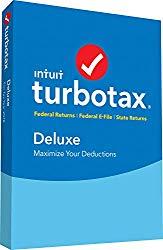
TurboTax Deluxe + State 2018 Tax Software [PC/Mac Disc] [Amazon Exclusive]
What bothers me is the creation of yet another class into which individuals are placed. As is the norm when this is done, the class of people is denoted by a label in the form, “The _____.” Let’s call this “class assignment.” Other examples of this are, “The homeless,” “The poor,” “The troops.” “The elderly,” and “The wealthy.” This is done for political reasons. If you can push people into a group, you can cause others to do what you want because not doing so would hurt this group. They become sacred cows, each equally deserving of sympathy (or, sometimes, disdain) as any other member of the class.
Maybe there’s a guy who could get a job with health insurance, but he’d rather just sit on the couch
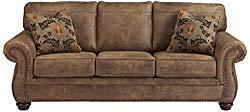
Likewise, maybe there’s someone who built a business from the ground up. He spent 140 hours per week, unpaid, producing the initial products, developing contacts, buying machinery, and filling out all of the tax and business paperwork. As he built the business he created hundreds of jobs and helped thousands of people. People do not know what they would do without his business there to serve there needs. In doing all this, while everyone he deals with feels that they received more than they paid for and his employees feel well compensated for their labor, he becomes very wealthy and is labeled as a member of the “wealthy.” He is lumped into the same group as a third-generation wealthy kid who receives royalties from his grandfathers business and has never worked a day of his life. Both are seen worthy of having their wealth taken by usurious taxes.
We don’t need “The unbanked.” I’m sure there are some people who have had some tragedy like a home fire where they lost all of their possessions including their identification. These people deserve great sympathy and we should find some way to help them. In fact, why do we even require seeing paper copies of identification anymore instead of just having electronic versions? People who simply choose not to have a bank account, however, need to deal with the inconvenience that their choice has caused. We should not require that businesses make special considerations for them. If businesses choose to cater to those who use cash, like me, that’s their decision. Provided there is sufficient competition, some businesses should choose this route.
Find all of the latest games here
And that’s just the point. The way to deal with big issues isn’t to have the government get involved and pass new regulations. Big issues do not tend to have some solution that a piece of legislation can solve. They are a lot of personal issues that get lumped together into some larger issue by creating “the homeless” or “the unbanked.” You can’t solve all of the little issues with legislation because the cause of the issue for each person is different – there is no single big solution. These issues are solver locally, personally, by individuals figuring out what is best for other individuals and doing their part. Sometimes someone needs mental health services. Sometimes they need to hit rock bottom and decide they want to change. Sometimes they need some financial assistance for a period of time while they get back on their feet. And sometimes they just need to be told to get themselves together.
Personal finance is personal
Just as there does not tend to be a single solution for big issues like homelessness and people not having bank accounts, there are no single ways to live or things to do when it comes to finances. Many things are said in the personal finance world that are broadcast as universal truths. You should put 15% of your paycheck away into retirement. You should not buy a home where the mortgage payment is more than 25% of your take-home pay. You should max out your 401k. You should start investing as young as possible.
While these things are true, they aren’t going to be something that everyone can do. In fact, they aren’t things that everyone should do. Personal finance is just that – personal. No, you shouldn’t buy a place that costs more than 25% of your take-home pay, but if your elderly mother lives in San Francisco and refuses to move, you might decide that the extra burden is worth it since moving somewhere cheaper would mean living too far away.
Personal finance writers tend to speak in absolutes because that is the best they can do. Just as you can’t pass one piece of legislation to help all of “the bankless,” you can’t write one article that is appropriate for every reader.
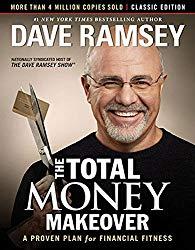
In my books, FIREd by Fifty: How to Create the Cash Flow You Need to Retire Early
In The SmallIvy Book of FInance, I also provide information on what you should be doing at each stage of your life, from the time you start looking at college and then get your first job to the time your nearing retirement and trying to figure out how to use the money you’ve amassed to generate the income you need. There is also a lot of information on investing, including an individual stock investing strategy I call serious investing that gives you a shot at beating the markets. Information on mutual fund investing is also included since not everyone will want to take the time and learn the knowledge needed to be successful as a stock picker.
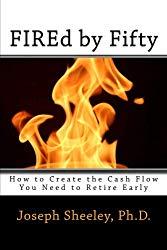
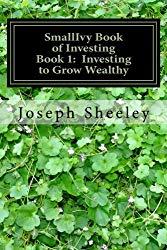
Have a burning investing question you’d like answered? Please send to [email protected] or leave in a comment.
Follow on Twitter to get news about new articles. @SmallIvy_SI
Disclaimer: This blog is not meant to give financial planning or tax advice. It gives general information on investment strategy, picking stocks, and generally managing money to build wealth. It is not a solicitation to buy or sell stocks or any security. Financial planning advice should be sought from a certified financial planner, which the author is not. Tax advice should be sought from a CPA. All investments involve risk and the reader as urged to consider risks carefully and seek the advice of experts if needed before investing.
